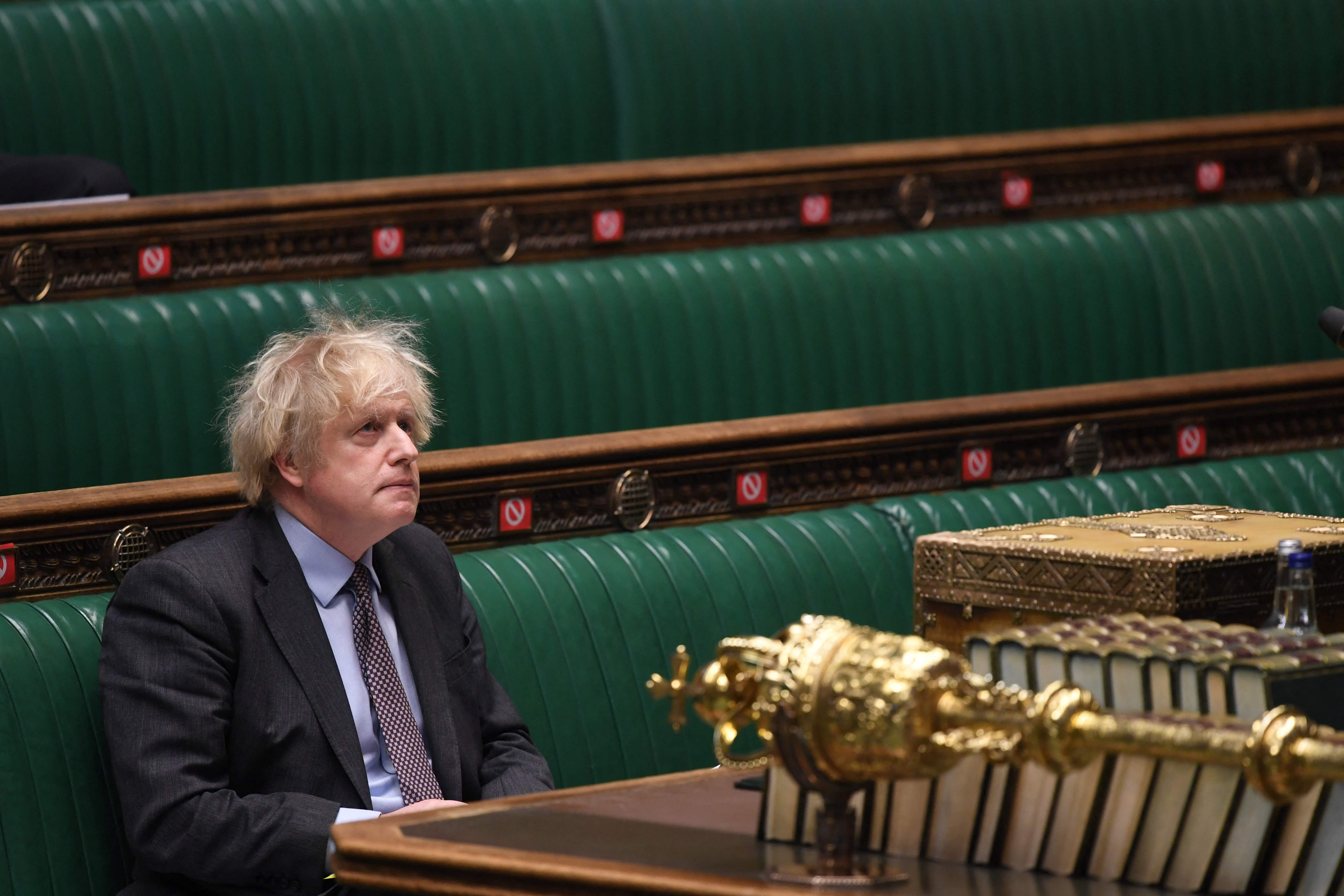Boris Johnson faces showdown with Tory rebels as peers inflict third defeat over ‘genocide amendment’
Peers voted by 367 to 214 in favour of measure

Your support helps us to tell the story
From reproductive rights to climate change to Big Tech, The Independent is on the ground when the story is developing. Whether it's investigating the financials of Elon Musk's pro-Trump PAC or producing our latest documentary, 'The A Word', which shines a light on the American women fighting for reproductive rights, we know how important it is to parse out the facts from the messaging.
At such a critical moment in US history, we need reporters on the ground. Your donation allows us to keep sending journalists to speak to both sides of the story.
The Independent is trusted by Americans across the entire political spectrum. And unlike many other quality news outlets, we choose not to lock Americans out of our reporting and analysis with paywalls. We believe quality journalism should be available to everyone, paid for by those who can afford it.
Your support makes all the difference.Boris Johnson is facing a showdown with Conservative rebels as peers inflicted a third defeat over the so-called genocide amendment aiming to prevent trade deals with countries guilty of such crimes.
In a heavy defeat for the government, the House of Lords backed a cross-party amendment to the Trade Bill by 367 votes to 214 — majority 153 — which would allow a parliamentary panel of judicial experts to make an initial determination on whether genocide had been carried out by a signatory to an agreement.
The vote is the latest iteration of the legislative tussle between the House of Lords and Commons — known as parliamentary “ping pong”.
With original proposals to give the High Court powers to determine whether a foreign power has committed genocide rejected by the government, the crossbench peer Lord Alton put forward a fresh amendment on Tuesday.
Proposing a “tweak”, Lord Alton pressed for a parliamentary panel of former judicial experts — rather than the High Court — to be involved in making a determination on whether genocide has been carried out by a signatory to a trade agreement.
Arguing for the measure, Lord Alton told peers: “We have failed to predict genocide, we have failed to prevent genocide, we have failed to protect victims of genocide and we have failed to prosecute perpetrators of genocide.
“The genocide amendment is a modest attempt to begin to address some of those failings. The all-party amendment is a genuine attempt to try and meet the government halfway.
“We have tweaked the government amendment, which would enable the appropriate select committee to refer evidence, if they have found some, to an ad hoc judicial committee comprised of members of our House who have served at the highest levels of the judiciary.
“Although emphatically it is not a court, which was the preferred option of peers, it would be empowered to determine whether the evidence is sufficient to support the claim that genocide has been or was being committed by a state counter-party to a bilateral trade agreement.”
With peers overwhelmingly backing the measure, the amendment will now be passed back for a vote of MPs in the Commons, paving the way for a possibility of a significant Conservative rebellion once again.
The issue has gained traction in recent months, with dozens of Tory MPs defying the government and voting for the measures, highlighting growing evidence of human rights abuses against the Uighur people, including reports of forced sterilisation, women being held in detention camps and rape.
Earlier, Holocaust survivors Ruth Barnett and Dorit Oliver Wolff wrote to the prime minister pleading for a meeting over the genocide law amid concerns over the treatment of the Uighur Muslim minority in China’s Xinjiang province.
“As survivors of the Holocaust, we know the trauma of genocide,” they wrote in their open letter to Mr Johnson.
They added: “Going forward as global Britain, the UK has a chance to be an international leader on this issue. We in the UK have identified the problems at the UN and with the limited jurisdictions of the international courts.
“Yet, we are proposing no solutions to these problems. The obligation to prevent and punish genocide arises where the UK learns, or ought to learn, of a serious risk that genocide will be committed. It is imperative that the UK makes a preliminary determination of genocide whilst we still have time to act.”
“Trade is not worth the price of a people. We simply cannot stand by when others remain silent. We cannot stand by whilst we carry on business as usual. Please meet with us ahead of the vote on the genocide amendment to discuss the changes we urgent need to see.”
Addressing the UN Human Rights Council earlier this week, the foreign secretary Dominic Raab urged the United Nations to respond to China’s “appalling treatment” of the Uighur people, suggesting “no-one can ignore the evidence anymore”.
He went on: “We see almost daily reports now that shine a new light on China’s systematic human rights violations perpetrated against Uighur Muslims and other minorities in Xinjiang. The situation in Xinjiang is beyond the pale.
“The reported abuses - which include torture, forced labour and forced sterilisation of women - are extreme and they are extensive. They are taking place on an industrial scale.”




Join our commenting forum
Join thought-provoking conversations, follow other Independent readers and see their replies
Comments